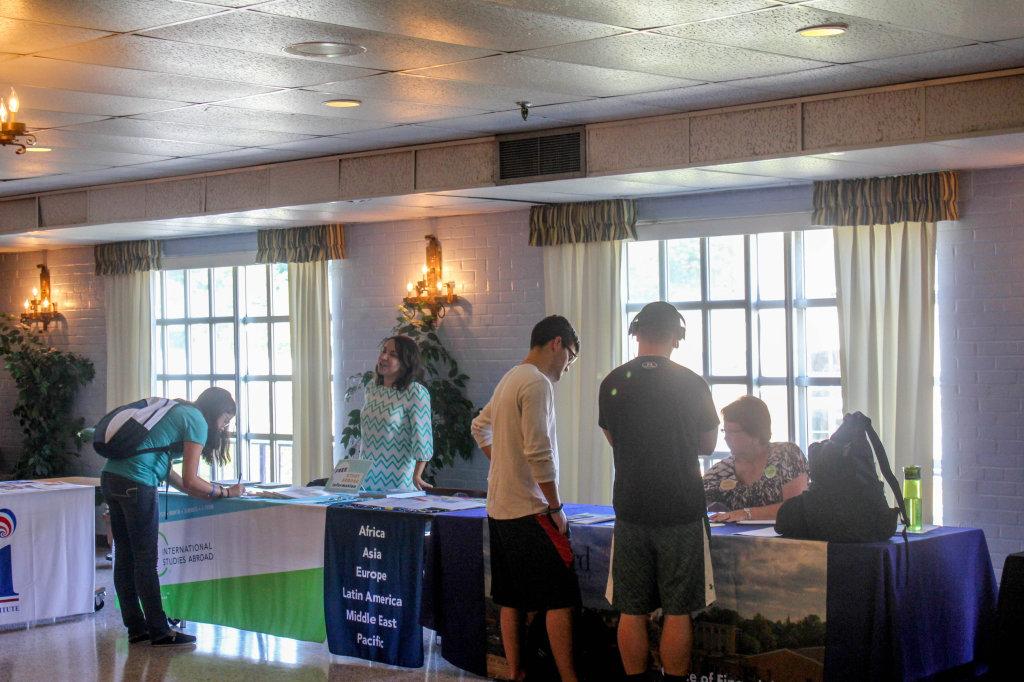On Sept. 18, Shepherd University hosted a study abroad fair. Held in the Student Center, the fair featured representatives from several study abroad organizations, as well as students and faculty involved in previous excursions. The Financial Aid Office also had representatives present.
International Studies Abroad (isa), American Institute for Foreign Study (AIFS), Center for International Studies (cis), Academic Programs International (api), International Student Exchange Programs (isep), and Knowledge Exchange Institute (kei) were represented at the event, as well as GoAbroad.com, and Shepherd-led Programs in the Appalachian region and across Europe.
Arrayed at tables in the student center, the representatives chatted with interested students about study abroad opportunities, guided them towards countries and programs of interest, informed them of scholarship and financial aid opportunities, handed out materials, and gathered information for future contact.
Most of the organizations offer comprehensive programs, fulfilling the role of travel agency, academic advisor, cultural expert, and financial planner, thus minimizing the amount of administrative red-tape and enhancing the quality of the student experience.
Many of the representatives had actually studied abroad themselves, and were eager to share their experiences, “I went to Croatia,” said one woman, “it was an incredible experience. And my best friend is going to Ireland this spring. She’s really excited about being there for Saint Patrick’s Day.”
In addition to the professional organizations, Shepherd University offers programs run by its own faculty. Professor Christopher Coltrin is organizing a summer tour of Europe, traversing nine countries in 30 days. “We had been doing one to two week programs in Europe before, but it just didn’t seem like enough time,” he said, “so I thought ‘let’s just do a whole month!’”
Financial Aid advisors were present, explaining to students the monetary options available for study abroad. These include scholarships, loans, grants, and fundraising. Their advice was to create a budget and apply early. “Don’t wait until the last minute,” one advisor said, “start applying immediately.”
Although the event was not crowded, many interested students were present. This allowed the representatives to have a lot of one-on-one time with the students, and allowed the students to visit all of the tables. “Where do you want to go?” was the question of the day, to which most students had a ready response. “Germany,” replied one, “I’m studying finance.”
Another common question was “What are you studying?” One woman replied, “I’m studying exercise science, and I want to go into physical therapy.” She did not have a strong preference regarding where to go, but was excited about her range of options.
Programs are offered by the semester, year, summer, or J-term (winter break), and are priced accordingly. Many summer programs involve multiple-country excursions and fewer credit hours, while longer programs are more academically intensive and often include a language element.
Classes are generally taught in English, but students usually return with at least a working knowledge of the host language, owing to language classes and general immersion according to representatives.
Shepherd University’s study abroad website has details about many programs and advisors are available to offer help.

